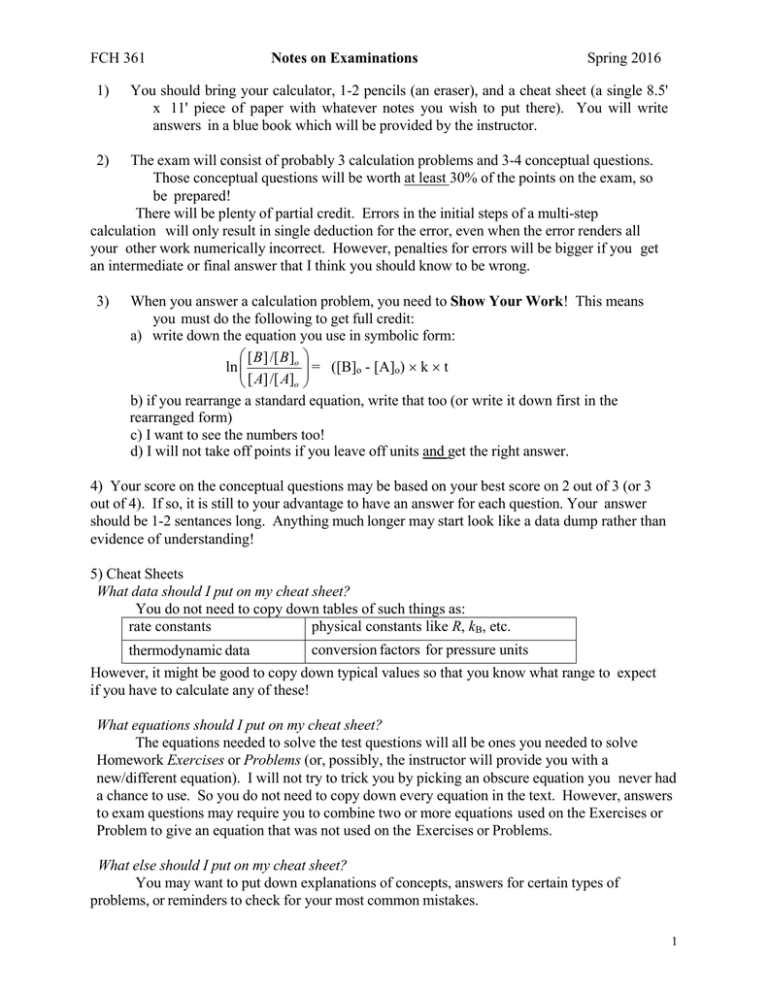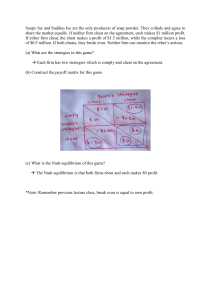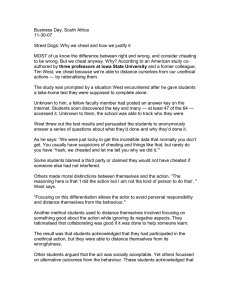FCH 361 Spring 2016
advertisement

FCH 361 1) Notes on Examinations Spring 2016 You should bring your calculator, 1-2 pencils (an eraser), and a cheat sheet (a single 8.5' x 11' piece of paper with whatever notes you wish to put there). You will write answers in a blue book which will be provided by the instructor. 2) The exam will consist of probably 3 calculation problems and 3-4 conceptual questions. Those conceptual questions will be worth at least 30% of the points on the exam, so be prepared! There will be plenty of partial credit. Errors in the initial steps of a multi-step calculation will only result in single deduction for the error, even when the error renders all your other work numerically incorrect. However, penalties for errors will be bigger if you get an intermediate or final answer that I think you should know to be wrong. 3) When you answer a calculation problem, you need to Show Your Work! This means you must do the following to get full credit: a) write down the equation you use in symbolic form: [ B ] /[ B ]o = ([B]o - [A]o) k t ln [ A ] /[ A ] o b) if you rearrange a standard equation, write that too (or write it down first in the rearranged form) c) I want to see the numbers too! d) I will not take off points if you leave off units and get the right answer. 4) Your score on the conceptual questions may be based on your best score on 2 out of 3 (or 3 out of 4). If so, it is still to your advantage to have an answer for each question. Your answer should be 1-2 sentances long. Anything much longer may start look like a data dump rather than evidence of understanding! 5) Cheat Sheets What data should I put on my cheat sheet? You do not need to copy down tables of such things as: rate constants physical constants like R, kB, etc. conversion factors for pressure units thermodynamic data However, it might be good to copy down typical values so that you know what range to expect if you have to calculate any of these! What equations should I put on my cheat sheet? The equations needed to solve the test questions will all be ones you needed to solve Homework Exercises or Problems (or, possibly, the instructor will provide you with a new/different equation). I will not try to trick you by picking an obscure equation you never had a chance to use. So you do not need to copy down every equation in the text. However, answers to exam questions may require you to combine two or more equations used on the Exercises or Problem to give an equation that was not used on the Exercises or Problems. What else should I put on my cheat sheet? You may want to put down explanations of concepts, answers for certain types of problems, or reminders to check for your most common mistakes. 1




